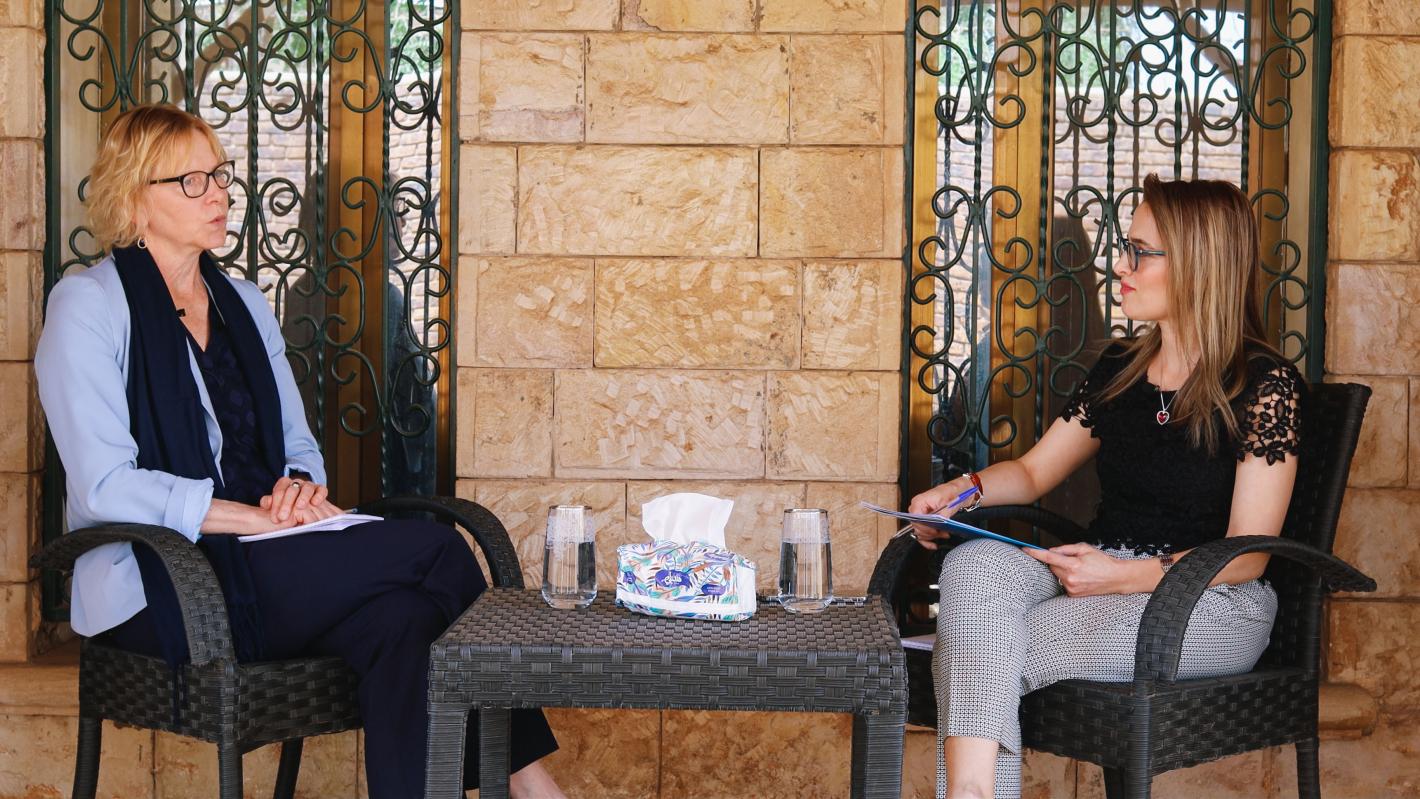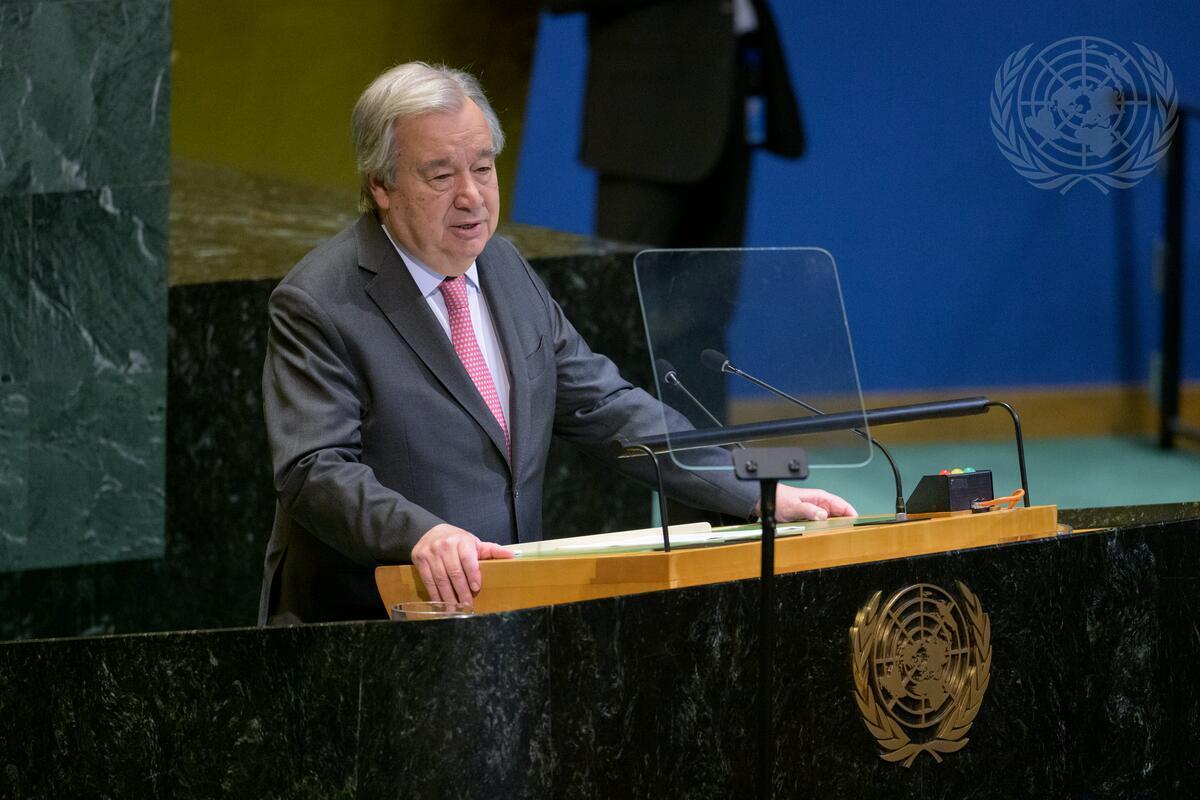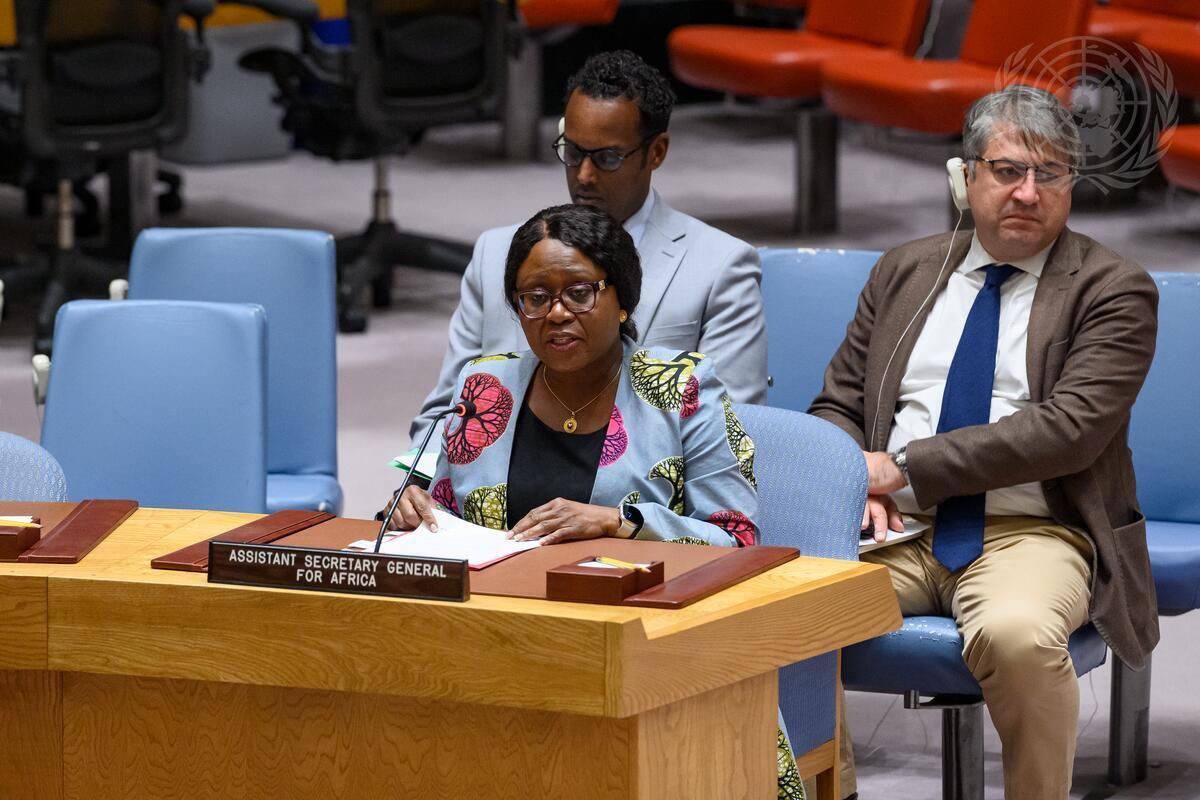Sudan will hold a national conference on Transitional Justice titled "Towards a Sudanese Model for Justice and Transitional Justice" in the Friendship Hall in the capital, Khartoum.
The upcoming National Conference is scheduled to start at 6:30 PM on Thursday 16 March to 20 March 2023.
Regional workshops had recently been held throughout the country.
To better understand of the concept of Transitional Justice and the importance of engaging Sudanese people in these discussions, the Strategic Communications and Media Section of the United Nations Integrated Transitional Support Mission in Sudan (UNITAMS) interviewed Ms. Priscilla Hayner, an independent expert on transitional justice at the mission, who explained the concept of transitional justice and its evolution over the course of time. She also touched on the importance of Sudanese’s participation in the relevant workshops and conferences so that they can formulate what suits their country.
In this context, Ms. Hayner “encouraged Sudanese to take the opportunity of this conference, which will be broadcast live, and, of course, easy to view online, to listen and learn”, to be able to draw their own plan.
What is transitional justice?
The term transitional justice may sound confusing in many ways, said Ms. Hayner, "I don't know if I want to call it a strange term, but sometimes people think it implies a different kind of justice or that it's a lesser kind of justice or It is a kind of compromised justice, and that is not the intention at all.”
It's a term of art that was gained in practice over the past two or three decades, said Ms. Hayner adding that "it is not intended to put aside any form of accountability. Within transitional justice is included criminal accountability prosecutions, strengthening the judiciary, working with international courts.”
The reason transitional justice has come to be known as a term of art, is that it became clear several decades ago in various countries around the world that even when there can be national prosecutions -and of course, there's constraints in many contexts to have successful national prosecutions-, there's a sense that this is not sufficient. There are many other needs for the victims, for the society as a whole, according to Ms. Hayner.
“The idea was to try to work in a collaborative way so that various elements of justice that are victim-focused justice and preventative justice and restorative justice can all be working together. So, transitional justice includes criminal prosecutions; It includes non-judicial truth seeking. Some countries have had national truth commissions that try to speak with as many victims and survivors and witnesses as possible, trying to tell the truth as a whole about what has happened in the country.”
Often, truth commissions may recommend that there will be more prosecutions or that there will be other types of programs to pay attention to the victims who have spoken to them, or that certain types of reforms be made, explained the independent expert. “The work of the truth commission may be very broad including searches, taking testimonies, but also coming up with recommendations and working on their implementation.”
Victim-focused compensation programs
“But how can we really help the victims to get justice and then later work on preventing such abuses from happening in the future,” we asked Ms. Hayner who said that part of what has been developed and became stronger but is actually quite difficult is “victim focused reparations programs” -which is another element of transitional justice, a very important element, she noted, and that can be constructed in various ways, not just based on financial reparations, but community based reparations and restorative reparations.
According to Priscilla Hayner, there is another element, what is called the fourth element of transitional justice which is “institutional reforms”.
“It's not sufficient to only hold people to account in the past if you think that somehow these violations might continue into the future,” she said adding that often a first priority for victims is justice, truth, reparations and services, “but I have found passionately that they also want to ensure that these kinds of abuses do not take place again in the future.”
Priscilla Hayner said the focus should be strong on necessary reforms in a number of sectors, including judicial reform or security sector reform, especially if there are people who have committed abuses that need to be addressed, adding that this should also be part of the transitional justice program and plan.
"So, it's about a victim-focused area of work in transitional justice in general," noted Priscilla Hayner, clarifying that "it goes across from holding those accused to account in court of law whenever possible and appropriate." Each country approaches this question differently, focusing largely on the needs of the victims. All of these elements come together to form transitional justice, asserted the independent expert.
It is worth noting that transitional justice is rooted in international human rights law. States have an obligation to provide victims of human rights violations with an effective remedy, satisfying their rights to truth, justice, and reparation. For the obligation to be met, and for transitional justice to be able to effectively contribute to sustainable peace and reconciliation, comprehensive approaches are required. Such approaches seek to make progress in all dimensions of transitional justice in a complementary manner.
Why is it important for Sudanese to participate in the workshops and conference on transitional justice?
“What we have seen very clearly around the world is that if a country tries to turn the page on the past without addressing what has happened, it usually doesn’t go well – it doesn’t go well for those who have survived the violence or those who have lost their loved ones. It doesn’t go well for the country as a whole.”
In this context, Hayner encouraged the Sudanese to seize the opportunity of this conference - which will be broadcast live and is easy to watch online – to try to listen and learn, noting that there are many excellent national experts who will be part of the panels, and will explain their views and what they see for Sudan. There will also be a number of excellent international experts who will attend, who will talk about how their countries are dealing with some of these issues. In this context, she stressed, "Nothing can be copied. It (transitional justice) cannot be imported. People should think about Sudan differently from any other country. It is not like another country."
Ms. Hayner pointed out that there are many things that other countries have tried to do right and got wrong, and there are things that they have done right with a lot of work and a lot of creativity. “There is a creative part of transitional justice in which you can match the different components of justice — judicial and non-judicial — in order to come up with a program, policy, and plan that helps the country as a whole.”
She hoped that the Sudanese would listen and think critically about what interest them or doesn’t interest them and think of what doesn’t work for Sudan.
“Is there anything that they think would be helpful for their particular case or for the country as a whole? and then take part in the conversation. This is really the beginning!”
Ms. Hayner drew attention to the many workshops on transitional justice that have taken place over the years, "but this conference is a national focus on the issue and it's really the beginning of a national conversation to work out what is the best policy for Sudan, what the Sudanese want to do here that will reflect their real needs?
“I think the public has to take part in the conversation. So, I hope this is the beginning of an opportunity.”






